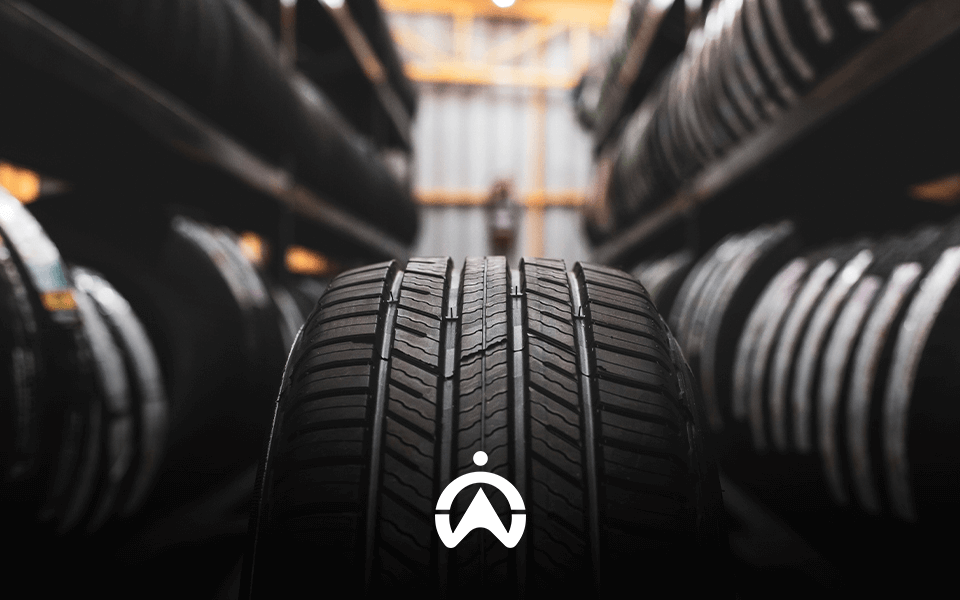Buying a Car – Know the Worst Car Buying Mistakes
Buying a car comes with extreme highs and lows. On the one hand, you have the freedom to travel wherever your heart desires, and everyday trips to work are now a breeze, but on the other hand, you now have to navigate vehicle maintenance, petrol, insurance, and monthly car payments for your new set of wheels.
Before coughing up and driving off, consider going through these car-buying tips and insights to avoid making car-buying mistakes that could cost you thousands.
Let’s get straight into it.
In this article, you will:
-
Learn what car-buying mistakes to steer clear of
-
Explore the basics of buying a car
-
Weigh the pros and cons of buying a new or used car
-
Discover the benefits of installing a vehicle tracking device
-
Understand why Cartrack is the perfect vehicle tracking company for your new car
Thinking about those first or next set of wheels?
Found yourself thinking about buying your next or first car lately? Before you embark on test drives and dealership negotiations, buckle up and equip yourself with some essential knowledge.
This crash course on car buying will navigate you through the twists and turns of getting the perfect buy without experiencing any bumps on the road.
The worst car-buying mistakes
Steering clear of common car-buying blunders is crucial for a smooth purchase experience. To avoid getting lost in a maze of bad decisions, here are the top five mistakes to avoid:
- Focusing only on monthly payments
When looking at your budget to assess if you can afford to buy a new car, don’t just concentrate solely on how much you will pay each month. Negotiating the overall vehicle price and financing terms separately is key to avoiding a higher overall cost.
- Letting emotions drive decisions
Falling in love with a particular model might lead to overpaying. It’s crucial to stay practical, do research, compare models, and ask yourself if the vehicle matches what you need and what you can afford.
- Skipping the test drive
Don’t judge a book by its cover, or, in this case, a vehicle by its design. Get in the driver’s seat and see what else the vehicle has to offer. The test drive is vital to ensure the chosen vehicle meets expectations and to prevent any surprises post-purchase.
- Overlooking used car inspections
When buying a used car, don’t always take the dealer’s word as fact. Get a trusted mechanic to further inspect the used vehicle. It is important to catch potential issues and avoid unexpected expenses.
- Lack of research
Not visiting and comparing other dealerships or delving enough into the vehicle itself, like the pricing and financing options, can all lead to overpaying and making uninformed decisions.
Now that you know what not to do when getting a car, let’s rewind to some car-buying basics and teach you all you need to get your new car off the lot and into your garage.
Buying a car: 101
Acquiring a car is a decision one should take seriously, some take months contemplating the make, model, year, diesel or petrol and so much more. Before deciding on the popular brand out right now, consider asking yourself these questions:
.png)
When is the best time to buy a car?
The answer to this might vary depending on where you are in the world. In South Africa, there are various trends that car buyers follow to find the right vehicle at the right price, like sales promotions, new model launches, and holiday trends.
Motorists often follow the seasonal sales at the end of the year. Between October and December. Many dealerships push to meet annual sales targets during this period, offering discounts and promotions on both new and used cars.
Similar to seasonal clothing sales, when a car manufacturer introduces a new model, dealerships also often slash prices on older models to make space for the latest release. This allows you to enjoy reduced prices, just like snagging discounts during a fashion sale.
If you can’t afford to wait months for the prices to cheapen up, you can visit the dealerships midweek on a Monday or Tuesday. Most dealerships are not as busy during the week, so you can take advantage of the low sales and strike up a deal.
What are your needs?
Finding the perfect car involves thoughtful consideration of various factors like financial planning, lifestyle preferences, and car features to ensure your choice aligns seamlessly with your priorities and, most importantly, your wallet.
- Financial planning: Think about what you can comfortably afford, not just for the car but also for insurance, fuel, and upkeep. Set a budget limit and stick to it.
- Lifestyle and requirements: Are you a city driver or someone who loves weekend trips? Consider what you need for daily life and plans, like space for the family or golf clubs, or maybe both.
- Car features: First, focus on important things like safety and reliability. Then, think about extra stuff like fancy tech or comfort. Usually, the more extras you want, the more it’ll cost, right? But if you want extra features from an affordable car, then buying a used vehicle with all the extras already included at a low price would be a big benefit.
What are the first steps of buying a vehicle?
When it comes to choosing your ideal vehicle, it’s all about informed decisions and hands-on experiences. Here’s how to navigate the process seamlessly:
- Do the research: Look up trusted brands online, learn as much as you can about the different types of vehicles, and ask around amongst your peers about their opinions.
- Explore: After reading articles and brand pages, your work is not yet finished. Visit dealerships, check online listings, and consider used cars for potentially better deals. If you’ve made your choice and have a specific car in mind, set up a test drive and experience driving the vehicle.
- Get a quote: If you think you’ve found the one, get a quote for the car from different dealerships and online car-selling platforms to compare prices and finance options.
Did you read the fine print?
It is time to “cross the ‘t’s and dot the ’i’s.” When it comes to paperwork, you must understand the small details. Take a closer look at the following:
- Insurance: Once your vehicle is on the road, its value decreases, and various issues like windscreen damage or hijacking can happen. Having insurance is crucial for protection. Select the coverage that fits your requirements and pocket.
- Maintenance package: Think about a maintenance plan that suits your vehicle’s requirements and usage. Invest in an extended warranty or maintenance package to enhance your vehicle’s well-being, ensure its longevity, and possibly reduce future repair expenses.
New or used?
Deciding between a new or used vehicle can be a tough call, with each option offering unique advantages and drawbacks. To help you navigate this important choice, let’s list out things to look out for each alluring option.
| Pre-loved cars | Brand new cars | |
|---|---|---|
| Price | Generally, it costs less upfront and might be negotiable. | Higher initial cost, but the potential for incentives. |
| Depreciation | Loses value more slowly over time. | Rapid loss of value, especially in the first years. |
| Safety | Depends on the condition of the vehicle and how old the vehicle is. | Depends on the model, but should have the latest standard safety features, like emergency braking and lane departure warnings. |
| Insurance rates | Often come with lower insurance premiums. | Higher insurance costs due to the car’s new value, make, model and colour. |
| Variety | More choices are available in the used vehicle market, from old to relatively new models. | Have access to the latest models but sometimes new cars are not readily available, especially for high-end cars, so drivers have to be on a waiting list. |
| Condition | May have some wear, tear and potential issues. | New vehicles have no history of accidents or wear and tear. They also come with a maintenance warranty. |
| Customisation | Modifications may already be done or available. | Full range of customisation options from the start. |
| Warranty coverage | Depending on the age, there might be limited or no warranty left. But some dealerships can provide a maintenance warranty at a cost. | Typically comes with a comprehensive warranty of around 3-5 years or 100,000 km, whichever comes first. |
| Financing rates | Higher interest rates for used car loans but lower total car costs. | Lower interest rates for new car loans but higher overall vehicle cost. |
How do you tell if a used car is a good buy?
If, after reviewing the list, you find yourself leaning more towards getting a pre-owned vehicle that matches your current needs and budget. It’s good to keep in mind that since these vehicles aren’t brand new and shiny, there are some additional precautions to consider to ensure the car you choose doesn’t have any hidden dents or extra expenses.
- Maintenance record
See if there’s a history of regular check-ups from a trusted garage. This tells you the car was looked after. If you can’t find these records or they’re not consistent, it might mean the car wasn’t well taken care of or has some hidden issues that might cost you in the future.
- Hidden damagesDon’t just focus on the shiny leather and fresh car smell. Check the car thoroughly for dents, scratches, and rust, especially in hidden spots. When you take it for a spin, pay attention to any strange sounds or handling issues.Tip: If you see different paint colours or uneven body parts, it could mean the car had some fixes done. Ask the seller directly about any past accidents and get records if they have them.
- Inspect the interiorLook for signs of wear like worn-out seats, ripped upholstery, and electronics that don’t work right. Test everything – the air conditioning, radio, power windows – to make sure they’re in good shape. Keep an eye out for weird smells or stains, which might mean there’s been water damage or other problems.
- MileageThink about how much the car has been driven. Lots of miles don’t always mean it’s a bad car, but it might need more fixing. Compare it with the maintenance record to be sure.
- VIN checkMake sure the car’s VIN (vehicle identification number) matches the documents. Use a VIN check service to find out if the car was in any accidents or had other issues. Always double-check that identification number if the VIN doesn’t match, it might mean the vehicle has been stolen.
You can learn a lot about a car’s history by checking out its previous owners and the reason why it was sold. An extra precaution to consider is to look up how many owners the car has had. The manual should provide this information, but the dealer should be able to provide it as well.

Get a tracking device for your new vehicle
So you’ve chosen the vehicle and you’re happy with your purchase. The next mission to tackle is security; get yourself a vehicle tracking device.
These days vehicle theft is as common as vehicle buying. It is an unfortunate reality, and ensuring a car’s safety is a top priority for most motorists. In these cases, a vehicle tracking device is more than just an optional accessory — it’s a proactive measure to safeguard your valuable asset.
Most new cars at the dealership today are already fitted with a tracking unit to help you protect your investment. All you have to do is become an official client of that tracking company.
Benefits of a tracking device
Besides all the safety features a vehicle tracking unit comes with, it also provides a big advantage in terms of insurance. Insurance companies like vehicles with tracking units because they make it easier to recover stolen cars quickly. This not only lowers the risk for insurers but might also score you some discounts or lower premiums if you go for this extra security measure.
Let’s see other benefits that come with installing a vehicle tracking device.
- Safety and security
– Decreased risk of theft: Without tracking, a stolen car is much harder to recover. With tracking devices installed, they can alert you in real time and assist police in locating your vehicle.- Emergency assistance: If you’re stranded or involved in an accident, you can use the provided mobile app to receive emergency assistance, or if the tracking unit has crash detection and you are involved in an accident, then the company will be notified of the event and send emergency assistance to your location.- Able to prove innocence: In the case of false accusations or hit-and-run incidents, proving your location and driving behaviour history through your GPS device can assist in validating your innocence.
- Peace of mind and convenience
– Precise driver monitoring: Stay informed about your vehicle’s location and usage. For instance, when your teenager is behind the wheel, track their adherence to safe driving practices.- Reduced anxiety and stress: Eliminate uncertainty by always knowing your car’s whereabouts, even during nighttime journeys or on unfamiliar routes.
- Financial aspects- Lower insurance premiums: As mentioned above, some insurance companies offer discounts for cars with tracking devices due to the lower risk of theft and fraudulent claims.
– Potential depreciation impact: Cars without tracking might be less desirable to future buyers, impacting resale value.- Costs associated with recovery: In case of theft, without tracking, recovery efforts can be time-consuming and very expensive, especially if the vehicle cannot be found and you have to potentially buy a new vehicle.
Choose the right tracking unit for your new vehicle
Searching for a trusted GPS unit is as easy as opening your search engine and looking for the most reliable and proven vehicle tracking company. Among the many companies that present themselves, there is one that has one of South Africa’s highest stolen vehicle recovery rates — Cartrack.
Install a Cartrack tracking device on your new vehicle and enjoy these benefits:
- Stolen vehicle recovery services (SVR): In the unfortunate event of vehicle theft or hijacking, our 24/7 control room and recovery teams leverage GPS tracking technology to locate and recover your vehicle swiftly.
- Limited recovery warranty: If your vehicle has been stolen and Cartrack cannot recover it, you can claim up to R150 000 in cash-back to replace your stolen vehicle. Ts&Cs apply to this warranty.
- At Cartrack, installation is free, at no cost to you or your wallet!
To sweeten the deal, Cartrack offers quality value-added services:
- CarWatch: This acts as an early warning system that you can activate through our mobile app. Once activated, it alerts Cartrack if your parked vehicle is moved without your knowledge.
- Protector: Provides 24/7 professional roadside assistance when you press the button on the Cartrack app. This service covers battery jumpstarts, tyre changes and car towing. Plus Legal assistance and emergency or accident services if needed.
Give your new car that extra layer of security you can trust with Cartrack’s vehicle safety solutions. Join over 1,9 million other happy Cartrack customers worldwide and put your vehicle’s protection first.
Get your free installation today.



